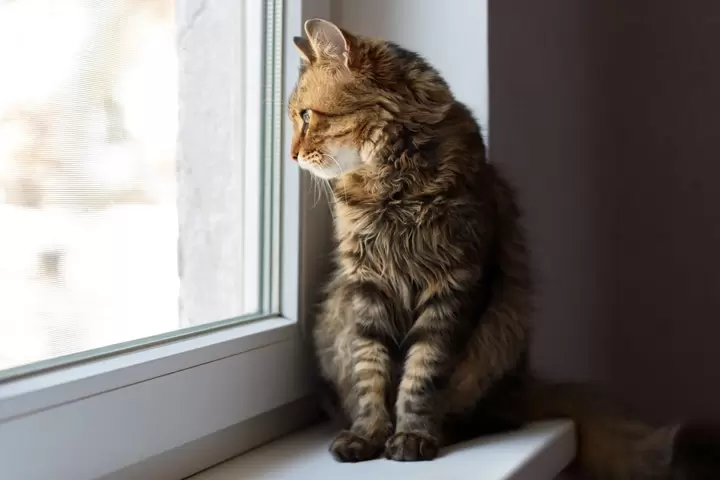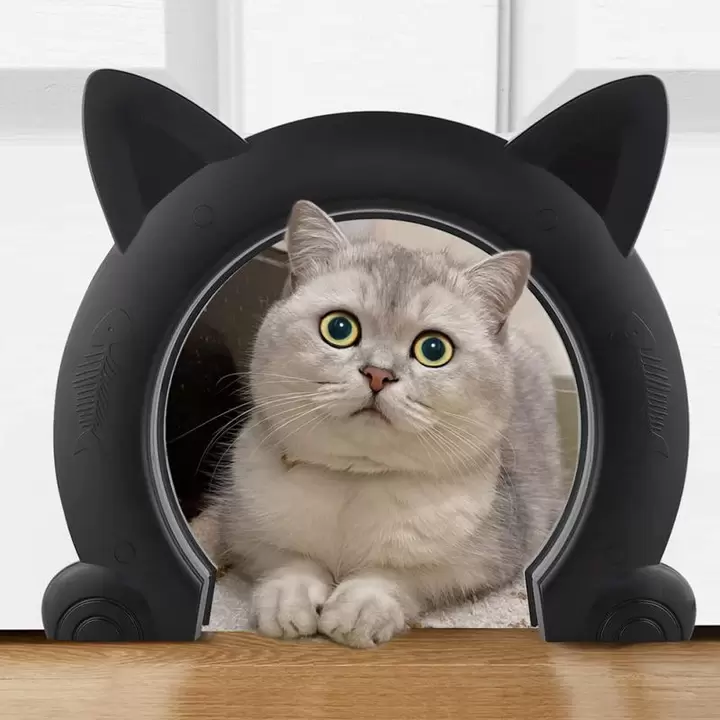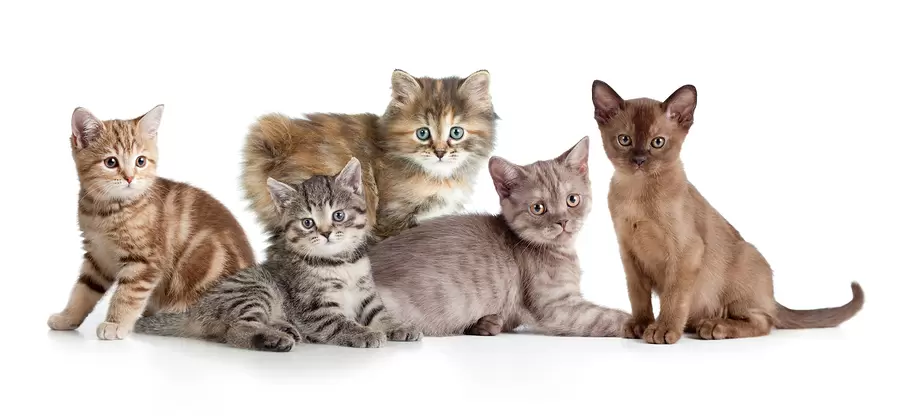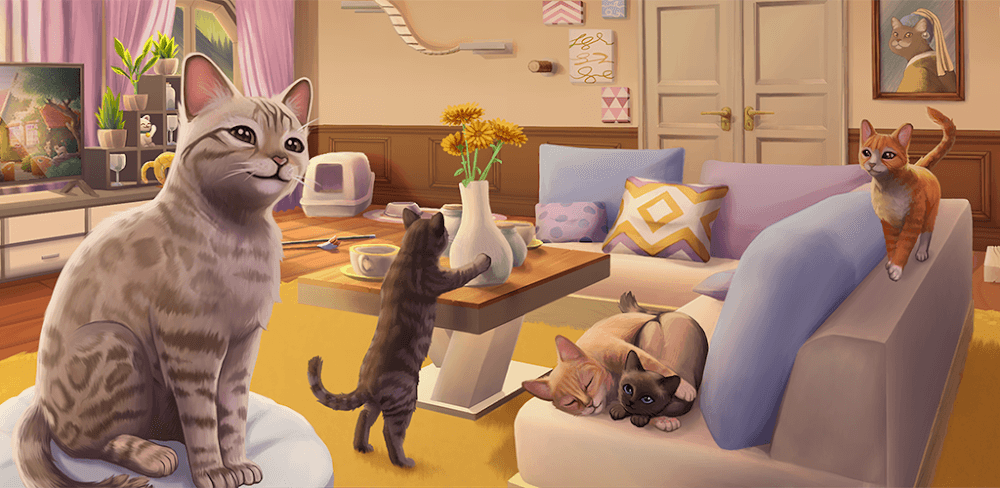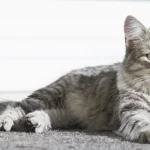Are you on the prowl for the best cat to share your home with? Look no further! We’re about to embark on a whisker twitching journey to discover the best indoor cat breeds that’ll make your heart purr. Whether you’re a seasoned cat lover or a first time pet parent, this guide will help you find the best indoor cat for your lifestyle.
Why Choose an Indoor Cat?
Before we dive into the world of indoor felines, let’s take a moment to appreciate why indoor cats make such fantastic companions. They’re safe from outdoor dangers, live longer, and shower you with affection 24/7. Plus, you’ll never have to worry about your neighbors complaining about a cat digging up their prized petunias!
Factors to Consider When Choosing the Best Indoor Cat
Finding the best cat for indoor living isn’t just about picking the cutest face (though that’s certainly a bonus). Here are some key factors to keep in mind:
- Personality: Does the cat’s temperament match your lifestyle?
- Energy levels: Can you keep up with a frisky feline, or do you prefer a laid-back lounger?
- Grooming needs: Are you ready for daily brushing sessions, or do you want a low-maintenance kitty?
- Health considerations: Some breeds are prone to certain health issues – are you prepared for potential vet bills?
- Space requirements: Do you have enough room for your new furry friend to thrive?
Top 5 Indoor Cat Breeds: The Cream of the Crop
Now, let’s sink our claws into the juicy details of the best indoor cat breeds. These feline superstars are known for their adaptability to indoor living and winning personalities.
-
Ragdoll: The Gentle Giant
Ragdolls are the teddy bears of the cat world. These blue-eyed beauties are known for their docile nature and tendency to go limp when held – hence the name “Ragdoll.”
Why Ragdolls make great indoor cats:
- Calm and affectionate personality
- Enjoy being held and cuddled
- Adapt well to various living situations
Care requirements:
- Regular brushing to prevent matting
- Moderate exercise needs
- Prone to overeating, so watch their diet
-
British Shorthair: The Teddy Bear Cat
With their round faces and plush coats, British Shorthairs look like they’ve stepped right out of a child’s storybook. These cats are known for their easygoing nature and adaptability to indoor life.
British Shorthair traits:
- Calm and undemanding
- Affectionate without being clingy
- Get along well with children and other pets
Grooming and health needs:
- Weekly brushing is sufficient
- Prone to obesity, so monitor food intake
- Generally healthy, but watch for heart disease in older cats
-
Maine Coon: The Gentle Giant
Don’t let their size fool you Maine Coons are gentle giants that make excellent indoor companions. These majestic cats are known for their playful nature and dog like loyalty.
Maine Coon quirks:
- Highly intelligent and trainable
- Love water and may join you in the shower
- Vocal, with a unique “chirping” trill
Exercise and space needs:
- Require plenty of vertical space for climbing
- Enjoy interactive play and puzzle toys
- Need regular exercise to maintain a healthy weight
-
Siamese: The Chatty Charmer
If you’re looking for a conversationalist, the Siamese might be your perfect match. These sleek, elegant cats are known for their vocal nature and strong bonds with their humans.
Siamese personality traits:
- Highly intelligent and curious
- Crave attention and interaction
- Can be trained to walk on a leash
Activity levels and care:
- Need plenty of mental stimulation
- Enjoy interactive toys and puzzle feeders
- Require minimal grooming
-
Persian: The Luxurious Lounger
With their flat faces and luxurious coats, Persians are the epitome of feline elegance. These cats are perfect for those who prefer a more relaxed pace of life.
Persian cat characteristics:
- Calm and quiet nature
- Content to lounge and observe
- Affectionate but not overly demanding
Grooming challenges and solutions:
- Daily brushing is essential to prevent matting
- Regular face cleaning to prevent tear stains
- May need professional grooming every few months
Other Great Indoor Cat Options
While the above breeds are often considered the best cats for indoor living, there are plenty of other fantastic options:
- Russian Blue: Known for their silvery coat and shy nature
- Scottish Fold: Adorable folded ears and sweet temperament
- Sphynx: Hairless and hypoallergenic, perfect for allergy sufferers
- American Shorthair: Adaptable and easygoing, great for families
Mixed Breeds and Rescue Cats: Hidden Gems for Indoor Living
Don’t forget about mixed breeds and rescue cats! These feline friends can make wonderful indoor companions. Here’s why:
- Unique personalities that blend traits from various breeds
- Often already adapted to indoor living
- The joy of giving a deserving cat a forever home
“Adopting a cat isn’t just about finding a pet – it’s about saving a life and gaining a friend.” – Anonymous
Creating the Perfect Indoor Environment
No matter which breeds you choose, creating a stimulating indoor environment is crucial for your cat’s happiness. Here’s a quick checklist:
- Scratching posts
- Cat trees for climbing
- Interactive toys
- Cozy hiding spots
- Window perches for bird watching
Health Considerations for Indoor Cats
Keep your indoor kitty in tip-top shape with these health tips:
- Regular vet check-ups
- Dental care to prevent gum disease
- Weight management through diet and exercise
- Mental stimulation to prevent boredom-related issues
Conclusion: Finding Your Perfect Match
When it comes to finding the best indoor cat, there’s no one-size-fits-all answer. The key is to match the cat’s personality with your lifestyle and preferences. Whether you choose a purebred or a rescue, remember that love, patience, and a comfy cat bed go a long way in creating a happy indoor cat.
FAQs About the Best Indoor Cats
Q:Are indoor cats happier than outdoor cats?
A:Indoor cats can be just as happy as outdoor cats when provided with proper stimulation and care.
Q:How much space does an indoor cat need?
A:While more space is always better, even apartment dwellers can keep cats happy with vertical spaces and interactive play.
Q:Can any cat breed adapt to indoor living?
A:Most cats can adapt to indoor living, but some breeds are naturally more suited to it than others.
Q:How do I keep my indoor cat entertained?
A:Provide a variety of toys, scratching posts, climbing structures, and interactive playtime.
Q:What’s the best indoor cat for families with children?
A:Breeds like the Maine Coon, Ragdoll, and American Shorthair are known for their patience with children.
Remember, the best cat for indoor living is one that matches your lifestyle and receives plenty of love and care. Happy cat hunting!

Hi. My Name is Alexander Bell. I am a professional content writer since 2006.
18+ years of experience crafting compelling and authoritative content for diverse audiences.
🖋️ Specialize in formal article writing, combining meticulous research with engaging storytelling.
📚 Proven track record of delivering high-quality content across various industries, including technology, finance, and healthcare.
💡 Skilled in SEO best practices and optimizing content for digital platforms to maximize reach and engagement.
🔍 Strong research capabilities, adept at distilling complex information into accessible, informative articles.
🎓 BA in English Literature

